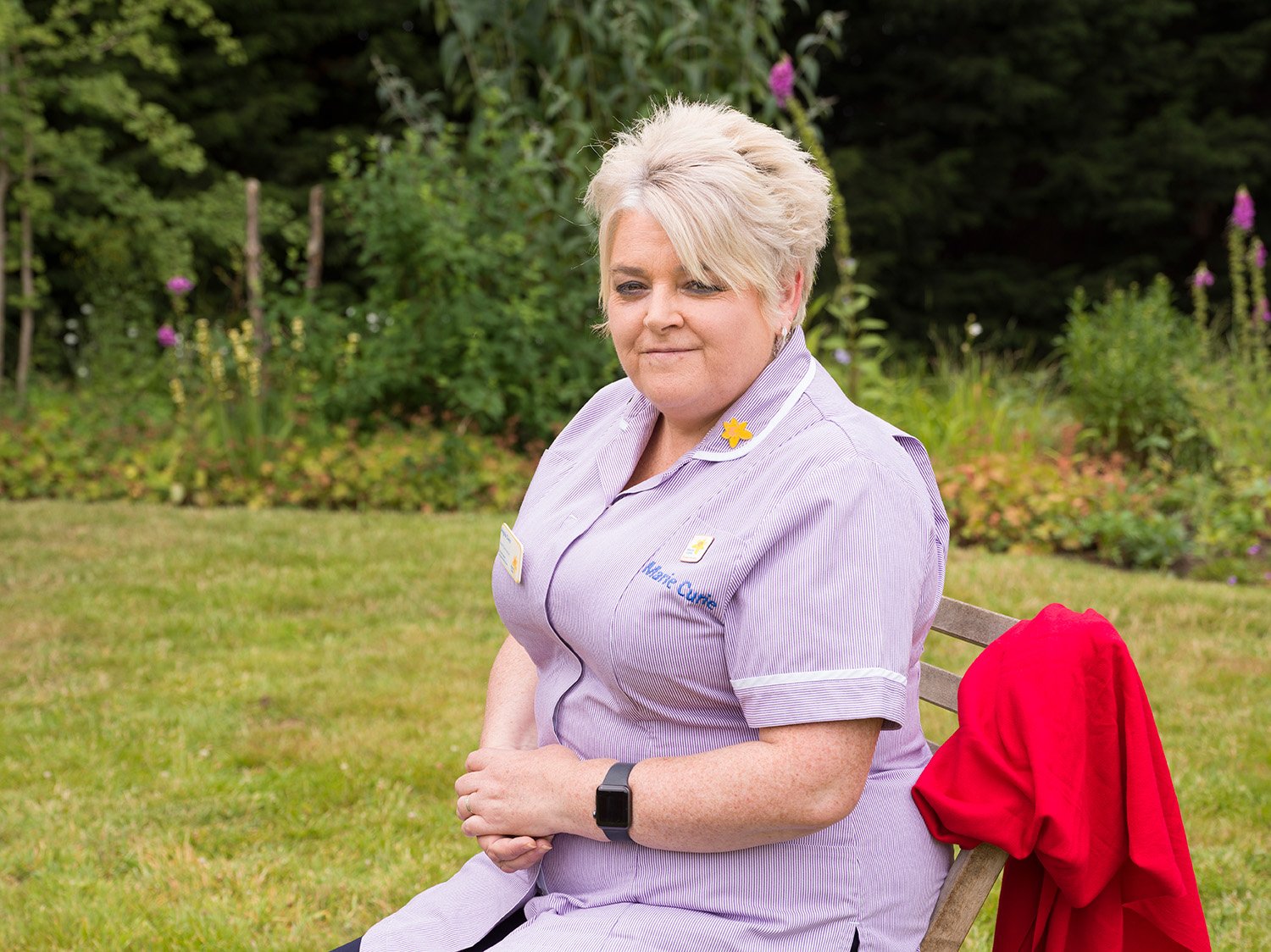What matters most?
Angie
Angie has worked for Marie Curie for nearly 6 years and loves her role. Previous to her starting her dream job she had always been a carer and worked for the NHS for 14 years in community spinal injuries and community high-dependency teams.
Angie waited 10 years to get her dream role.
“It’s the best job ever. I have always wanted to work for Marie Curie. I love it! People think that Marie Curie is just about cancer care but we’re not, we do all kinds. My mum always said to me that I could be in a room full of people and by the end of it I’d know everybody’s life story. That’s just the kind of person I am, and I think that’s why I’m able to do this job. I get on with all my patients and I love it.”
To Angie there is nothing more important than caring for people who are coming to the end of their life, her desire is to make them feel at ease. “If I told people that I was a midwife everyone would say what a lovely job you're bringing someone into the world, but I feel honoured to be with someone going out of the world. Everybody must die, and so many people don’t talk about it. You don’t need to fear it. A good death comes down to the person telling you just before they pass that they have had a fantastic life. You are only here for a short while so go out and enjoy life. That’s it really.”
Within her role Angie works nights. Visiting the home of the patient that she will be caring for at the time. Giving peace of mind to families, when they need rest, that their loved ones are cared for “I work from 10 o’clock in the night until 7 o’clock in the morning. If we have a new patient I will go in and usually introduce myself to the family first, as they are often the ones that answer the door. After that, I will introduce myself to the patient. The family will do a handover on the care and tell you what they expect of you. I will ask if there is anything more they need to know about us and the service we offer. Usually, the family will retire to bed around 11 pm, as that is why we are there, to give them a rest. If the patient is awake, we will chat about day-to-day things. I really like to hear their life stories and if they’ve got photos around that’s even better because we can chat about the photos. It’s nice to know about the life they lived before they were ill.”
She often is amazed by how the family have had a good night’s sleep and what a positive effect that has. “You'll be surprised how many times they come down in the morning, we've had a fantastic sleep because they know that somebody's there. They’re safe in the knowledge that there is someone there with their loved one and if any help is needed, they will be notified straight away.” This assurance can help families to unwind and that is what can be so important. Angie can often see, even as she first walks through the door, the weight being lifted from the family as they are able to take a break.










